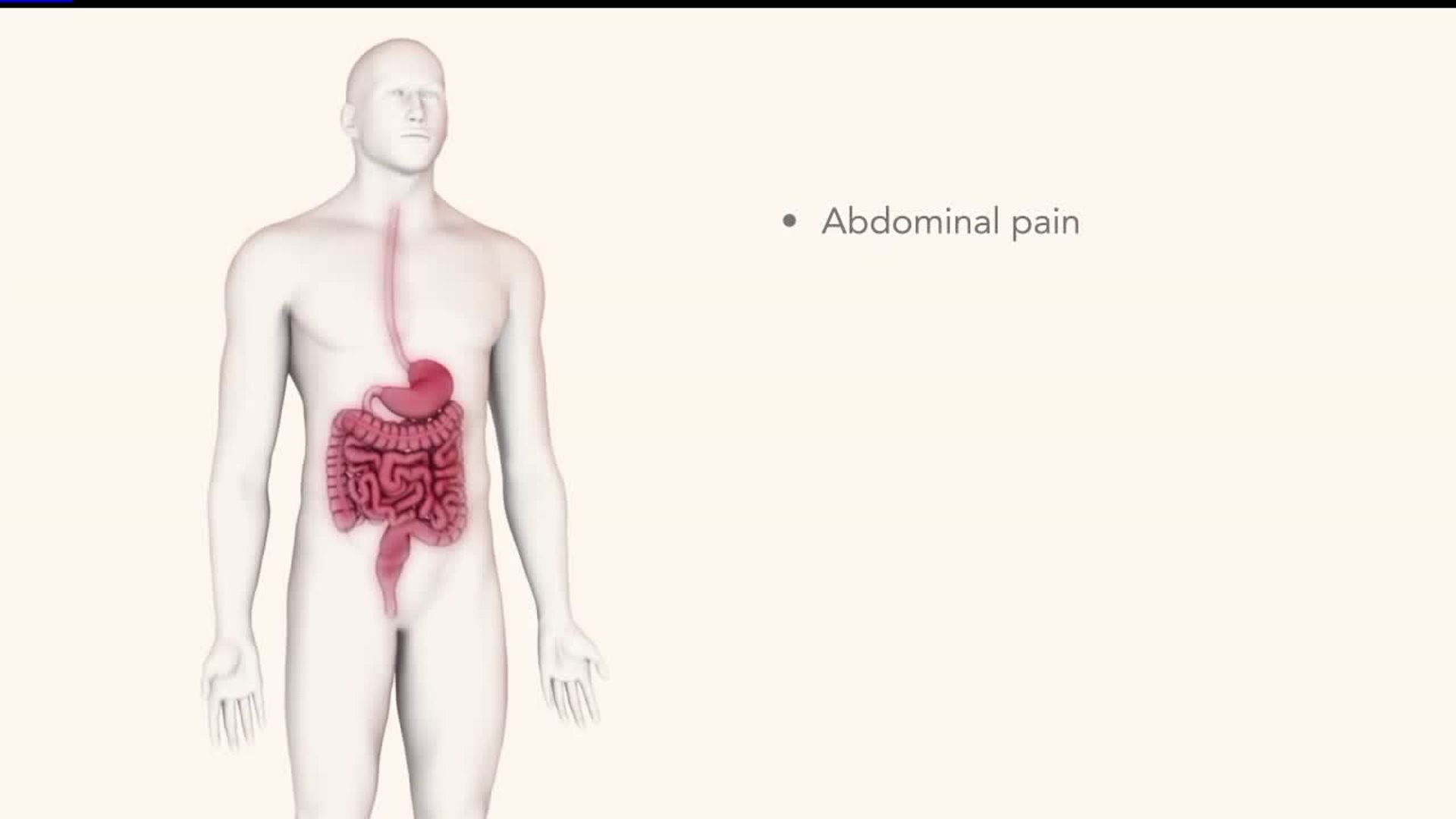DERRY TOWNSHIP, Pa. -- It's called a "silent disease," yet an estimated 780,000 Americans are affected by Crohn's Disease, chronic inflammation of the intestines, and the number of cases in the western world is growing.
Crohn's Disease is one of two types of inflammatory bowel disease, or IBD.
"That sort of eroded-like injury to the palms of your hands after you've flipped off a bike is sort of like what happens to the insides of your bowel," says Dr. Walter Koltun, chief of colon and rectal surgery at Penn State Hershey Medical Center. He says the symptoms of Crohn's Disease can cause serious distress.
"Most commonly it's pain, cramping, it can be bloody stools, it can be loss of weight due to malnutrition because the nutritive function of the intestine doesn't work very well when it's inflamed."
Those symptoms are often what eventually leads to a diagnosis. Doctor Koltun says patients who experience symptoms of an IBD are usually diagnosed after getting x-rays and scope testing. Those tests could also include biopsies.
Crohn's Disease is believed to be an auto-immune condition, meaning it's an illness that forces the body to attack itself.
"The most recent thoughts into how this disease is caused is by some sort of exposure to some bacteria or some bacterial products or some sort of infectious agent in the bowel that normally does not cause disease at all for most people," Dr. Koltun explains.
Crohn's Disease might also be hereditary. Recent studies have shown a person with an irritable bowel disease has up to a 30-percent chance of having a family member with a similar diagnosis.
The biggest hurdle in treating the disorder, is that no one knows what causes Crohn's Disease.
"There are so many genes now that seem to be affiliated with the disease," says Dr. Koltun, "we're starting to wonder if it's the same disease anymore. If what the genetic abnormality is in one person who has IBD, whether that in fact is a different disease than the next patient."
Dr. Koltun says an unknown cause is also the looming question mark standing in the way of a cure.
"It's not going to be one cure. It's going to be a whole bunch of cures. It's going to be what cures one IBD patient isn't going to cure the patient standing next to them who has IBD."

